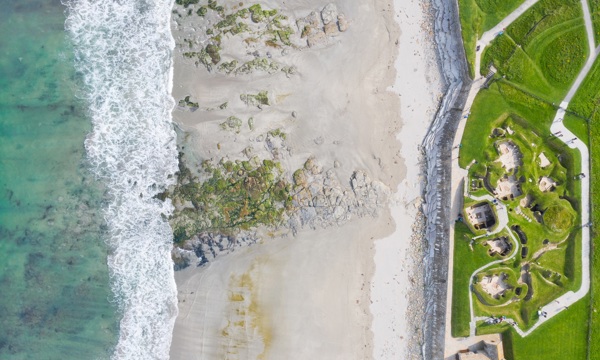We have published the results of our recent community consultation where local residents, businesses and organisations in Orkney were asked for their views on the Heart of Neolithic Orkney World Heritage site and how the management of the site affected them.
The consultation included a series of community engagement sessions, workshops with schools, smaller focus groups and individual meetings with different community groups held across mainland Orkney.
The consultation took place prior to the Covid-19 pandemic.
Top level findings from the community consultation include:
- 98% of residents stated they felt proud of the World Heritage Site
- 83% of survey respondents felt the history and archaeology of Orkney was important to them, while 63% attributed the same level of importance to the World Heritage Site
- 79% of residents and 97% of businesses think that tourism has a positive impact on Orkney overall
- 88% of residents feel that visitors are negatively affecting the condition of the World Heritage site monuments and the surrounding environment
Alice Lyall, Deputy Head of World Heritage at HES, said:
We’d like to thank people across Orkney for taking the time to engage with us during the community consultation."
“Throughout the community engagement we heard that Orcadians are extremely proud of their heritage and the history of the islands, but also that many people felt that there were improvements that could be made, including the benefit of a more joined-up approach in connecting the World Heritage site to other historic sites locally."
“The feedback that local people have provided will help us to create a management plan that balances different aspects of the World Heritage site, like tourism and conservation of the monuments, with the daily lives of the people that live and work in Orkney.”
The Heart of Neolithic Orkney World Heritage Site is located in the West Mainland and comprises the domestic settlement at Skara Brae, Maeshowe Chambered Cairn, the Stones of Stenness circle and henge and the Ring of Brodgar stone circle.
Alice continues:
“The community responses clearly recognise that the Heart of Neolithic Orkney plays a key role in the Orkney tourist economy, and the site has an important role to play in the Covid-19 recovery process when it’s safe to do so."
"Practically, this will mean new ways of opening and experiencing the monuments to make sure residents and visitors can safely enjoy and benefit from the World Heritage Site. The new management plan, informed by the community consultation, will provide a framework for the management group to make these decisions for the future.”
UNESCO inscribed the Heart of Neolithic Orkney in 1999 for the outstanding testimony the monuments bear to the cultural achievements of the Neolithic peoples of northern Europe.
The individual sites that form part of the Heart of Neolithic Orkney are managed by Historic Environment Scotland (HES) on behalf of Scottish Ministers. The World Heritage Site is managed in partnership by HES, Orkney Islands Council, Scottish Natural Heritage (SNH) and the RSPB.
The community consultation will now be used to inform the development of a new five-year Management Plan for the World Heritage Site.
About Historic Environment Scotland (HES)
- We are the lead public body charged with caring for, protecting and promoting the historic environment. We will lead on delivering Scotland’s first strategy for the historic environment, Our Place in Time.
- Historic Scotland, Scran, Canmore, The National Collection of Aerial Photography (NCAP), The Engine Shed, Stirling Castle and Edinburgh Castle are sub-brands of HES.
- View our press pack and keep up to date by registering for media release email alerts. If you wish to unsubscribe, please contact us.
Follow Historic Environment Scotland
Twitter: @HistEnvScot | @welovehistory
Facebook: @HistoricEnvScotland | @VisitHistoricScotland
Instagram: @HistEnvScot | @historicscotland
For further information, please contact:
Claire Mullaney
Historic Environment Scotland Media Office
Direct line: 0131 668 8588
Mobile: 07881 512 379
communications@hes.scot

